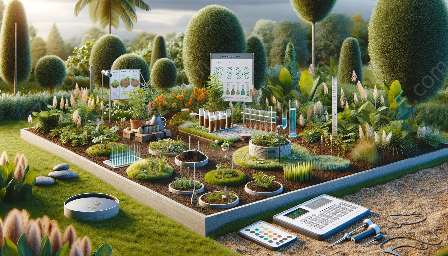Agricultural engineering plays a crucial role in the sustainable development and productivity of horticulture, agriculture, and forestry. This field encompasses various disciplines, including mechanical, electrical, chemical, civil, and biological engineering, to address the unique challenges and opportunities within the agricultural sector.
The Importance of Agricultural Engineering
Agricultural engineering focuses on enhancing the efficiency, sustainability, and resilience of agricultural operations. By integrating advanced technologies and innovative practices, agricultural engineers contribute to the development of precision farming techniques, automated systems, and environmentally friendly solutions.
Within horticulture, agricultural engineering facilitates the design and implementation of efficient irrigation systems, greenhouse automation, and climate control mechanisms to optimize crop production and quality. Similarly, in agriculture and forestry, agricultural engineers play a key role in developing machinery, equipment, and processes that improve soil health, minimize environmental impact, and maximize resource utilization.
Technological Innovations in Agricultural Engineering
The field of agricultural engineering is continuously evolving with the introduction of cutting-edge technologies. Precision agriculture, drone applications, sensor-based monitoring, and autonomous machinery are revolutionizing the way agricultural activities are managed and executed.
These technological innovations enable precise mapping of soil and crop characteristics, real-time monitoring of plant health, and data-driven decision-making for pest control and resource allocation. In horticulture, agricultural engineers leverage these technologies to create ideal growing conditions, monitor microclimatic parameters, and optimize water and nutrient management.
Challenges and Solutions in Agricultural Engineering
While agricultural engineering presents numerous opportunities for advancement, it also involves addressing complex challenges such as climate change, water scarcity, and sustainable resource management. Agricultural engineers are at the forefront of developing solutions to mitigate these challenges through the design of energy-efficient machinery, development of eco-friendly pest control methods, and promotion of precision irrigation techniques.
In horticulture, the application of sustainable practices and bioengineering solutions contributes to the conservation of natural resources, protection of biodiversity, and enhancement of crop resilience. Agricultural engineering also plays a critical role in enhancing the post-harvest management and preservation of agricultural products, ensuring their quality and safety throughout the supply chain.
Research and Development in Agricultural Engineering
The field of agricultural engineering thrives on continuous research and development efforts aimed at addressing emerging agricultural issues and driving technological innovation. Collaborative initiatives between agricultural engineers, horticulturists, and experts in agriculture and forestry lead to the discovery of novel solutions for enhancing agricultural sustainability and productivity.
Research in agricultural engineering encompasses diverse areas such as bioenergy production, waste management, climate-smart technologies, and the integration of renewable energy sources into agricultural systems. This multidisciplinary approach fosters the development of holistic solutions that benefit horticulture, agriculture, and forestry while minimizing environmental impact.
Collaboration with Horticulture and Agriculture in Agricultural Engineering
Agricultural engineering closely aligns with horticulture and agriculture, forming a symbiotic relationship that drives progress and innovation. Collaboration between agricultural engineers, horticulturists, and agricultural professionals leads to the exchange of knowledge, expertise, and best practices for improving production systems and resource utilization.
In horticulture, agricultural engineers collaborate on the development of energy-efficient greenhouses, automated irrigation systems, and precision nutrient delivery methods. This collaboration results in the creation of optimal growing environments and the efficient use of resources for cultivating a wide range of horticultural crops.
The Future of Agricultural Engineering
As global agricultural challenges become more complex, the significance of agricultural engineering in horticulture, agriculture, and forestry will continue to grow. The future of agricultural engineering lies in the integration of advanced technologies, data analytics, and sustainable practices to address the evolving needs of food production, environmental conservation, and rural development.
By embracing digitalization, robotics, and smart farming concepts, agricultural engineering will lead the way in promoting resource-efficient and environmentally conscious agricultural systems. The collaboration between agricultural engineers, horticulturists, and agricultural and forestry experts will be instrumental in shaping a sustainable and resilient future for the agricultural industry.



